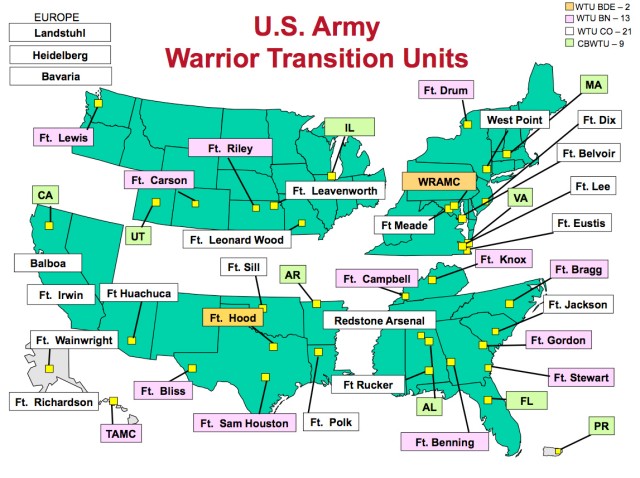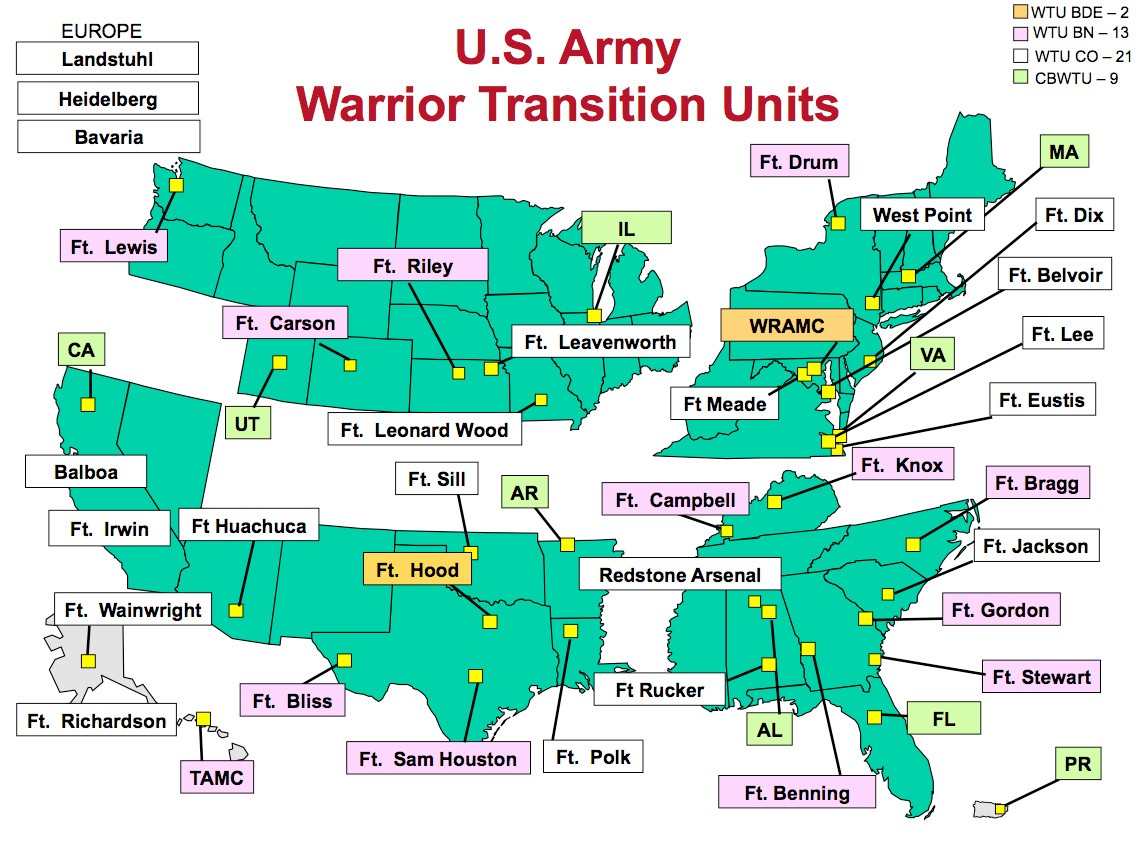WASHINGTON (Army News Service, May 28, 2009) -- The Army Warrior Transition Command overseeing the Warrior Transition Units is issuing refined criteria and instructions for assignment to WTUs to allow more Reserve and National Guard Soldiers to recover in their hometowns through community-based WTUs.
Many of the warriors in transition will not only have the benefit of recovering at home, they'll also be able to use local civilian health care facilities, while remaining under the direct supervision of Army unit leaders and medical case managers.
As part of the Army's Warrior Care and Transition Program, Soldiers whose injuries or illnesses require complex medical care are assigned to WTUs, which provide unit leadership and hands-on care management to Soldiers.
The CBWTUs located regionally around the U.S. have Army cadre and medical case managers on staff comparable to active-duty WTUs, but assigned Soldiers normally live at home and undergo treatment in the local civilian TRICARE health network.
In the past, reserve-component Soldiers who were mobilized for active-duty deployment and became ill or injured were routinely assigned to the active-duty WTU at the mobilization station or Army post where they reported for deployment.
Under the new guidance, commanders of WTUs and Army hospitals who determine Soldiers' eligibility for WTU assignment will have the authority to transfer a wounded, ill or injured reserve-component Soldier to the CBWTU or WTU nearest the Soldier's hometown.
The reason for the change came from Secretary of the Army Pete Geren, who has met with hundreds of recovering Soldiers in WTUs worldwide and related that one of the chief complaints from Reserve and National Guard Soldiers was separation from the family during the healing process at an active-duty WTU.
"We've found that the family component is critical in the successful healing and transition of Soldiers," said WTC Commander, Brig. Gen. Gary Cheek. "This is another refinement of the program that better incorporates that critical aspect."
According to WTC planners, clinical care requirements will always drive the determination for WTU assignment. Within the Warrior Care and Transition Program, each Soldier undergoes a comprehensive medical evaluation to determine WTU eligibility.
If a reserve-component Soldier qualifies for retention on active duty for medical reasons, but does not require the daily medical care management provided by an active-duty WTU or military treatment facility, the Soldier will be assigned to the CBWTU closest to his or her hometown or support network, provided the location has the medical capacity to meet the Soldier's needs.
If the Soldier's condition requires daily care management, they will be assigned to the active-duty WTU at the military treatment facility closest to his or her hometown. Commanders will also have the ability to transfer a reserve-component Soldier to a CBWTU from a WTU after the medical condition has been stabilized.
One side benefit of the new policy is to encourage reserve-component Soldiers returning from deployment to remain on active duty under an Army medical retention program, so any medical issues can be addressed quickly.
In the past, some Soldiers opted to demobilize to expedite their return home, only to discover health issues that required them to request a return to active duty for treatment.
Now commanders have 30 days to transfer eligible reserve-component Soldiers to a CBWTU or to a suitable WTU near their home. This will enable Soldiers to transition quickly back to their families while receiving focused care at the CBWTU.


Social Sharing